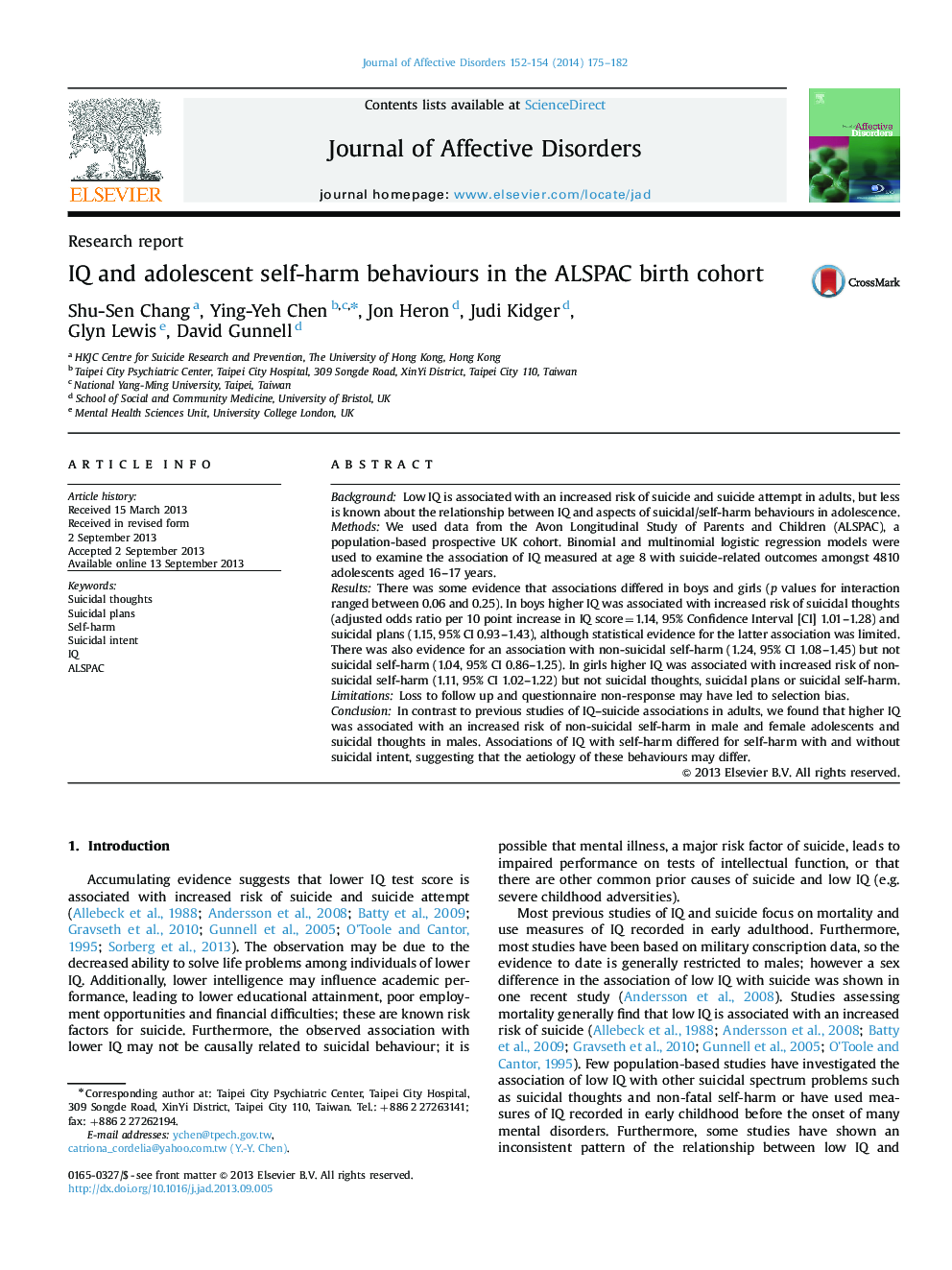| Article ID | Journal | Published Year | Pages | File Type |
|---|---|---|---|---|
| 6233135 | Journal of Affective Disorders | 2014 | 8 Pages |
BackgroundLow IQ is associated with an increased risk of suicide and suicide attempt in adults, but less is known about the relationship between IQ and aspects of suicidal/self-harm behaviours in adolescence.MethodsWe used data from the Avon Longitudinal Study of Parents and Children (ALSPAC), a population-based prospective UK cohort. Binomial and multinomial logistic regression models were used to examine the association of IQ measured at age 8 with suicide-related outcomes amongst 4810 adolescents aged 16-17 years.ResultsThere was some evidence that associations differed in boys and girls (p values for interaction ranged between 0.06 and 0.25). In boys higher IQ was associated with increased risk of suicidal thoughts (adjusted odds ratio per 10 point increase in IQ score=1.14, 95% Confidence Interval [CI] 1.01-1.28) and suicidal plans (1.15, 95% CI 0.93-1.43), although statistical evidence for the latter association was limited. There was also evidence for an association with non-suicidal self-harm (1.24, 95% CI 1.08-1.45) but not suicidal self-harm (1.04, 95% CI 0.86-1.25). In girls higher IQ was associated with increased risk of non-suicidal self-harm (1.11, 95% CI 1.02-1.22) but not suicidal thoughts, suicidal plans or suicidal self-harm.LimitationsLoss to follow up and questionnaire non-response may have led to selection bias.ConclusionIn contrast to previous studies of IQ-suicide associations in adults, we found that higher IQ was associated with an increased risk of non-suicidal self-harm in male and female adolescents and suicidal thoughts in males. Associations of IQ with self-harm differed for self-harm with and without suicidal intent, suggesting that the aetiology of these behaviours may differ.
